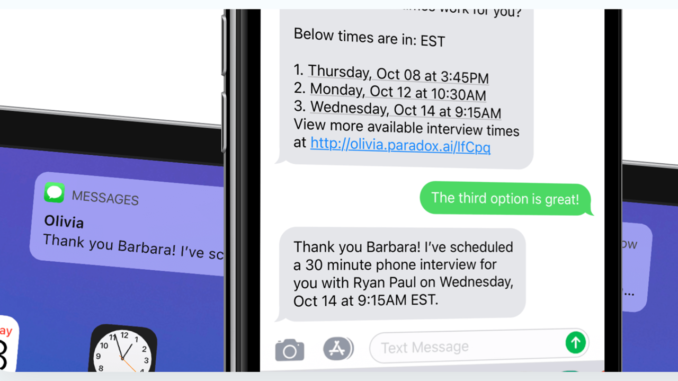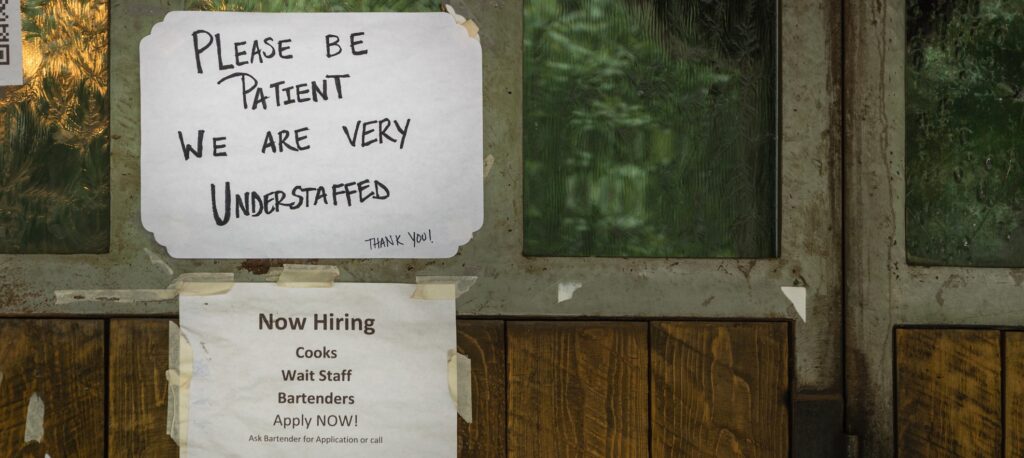
By Jori Hamilton, RTN Feature Writer - 1.5.2022
Talent recruitment and retention is problematic for today’s restaurants. And there are several reasons why this is the case.
First, the pandemic has escalated the so-called war for talent among restaurants. Prior to the pandemic, there was a preexisting talent shortage across the restaurant industry. Since the pandemic began, limited talent has been available to restaurants. This is leading restaurants to consider new hiring initiatives and other innovative opportunities to engage with talent.
On top of that, the “Great Resignation” is underway. Labor Department data shows that a record 4.5 million American workers quit their jobs in November, with the restaurant industry hit especially hard. In fact, according to the Bureau of Labor Statistics, 920,000 workers from the accommodation and food services sector voluntary quit their jobs that month, representing almost 7 percent of the food and beverage workforce.

The pandemic and Great Resignation show no signs of ending any time soon. Thus, restaurants must act quickly to bolster their talent recruitment and retention efforts. Now, artificial intelligence (AI) recruitment technology represents a viable option to help restaurants do just that.
What Is AI Recruitment Technology?
AI can simplify HR talent recruitment processes for restaurants, one of the main HR processes in any business. To understand how, let’s consider an example.
Technology solution provider Paradox recently unveiled its Olivia Hire for Retail & Restaurant solution for high-volume retail and restaurant locations. Olivia uses AI-based assistive intelligence to help restaurants manage different aspects of talent recruitment, including:
- Application Submissions: Lets job candidates use SMS to submit their resumes and other application materials.
- Candidate Screening: Evaluates candidates in alignment with an employer’s requirements to determine if an individual may be a good fit for a role.
- Talent Engagement: Communicates with candidates and keeps them up to date as they move through the hiring process.
Olivia is one of several AI-powered talent recruitment and workforce management solutions for restaurants. Like other AI technologies, it empowers restaurants to speed up talent recruitment. Plus, the technology can help restaurants deliver outstanding candidate experiences, as well as lower their talent recruitment costs.
Is AI Recruitment Technology Effective?
AI recruitment technology can help restaurants avoid a variety of staffing issues, such as:
- Reactive Hiring: Ensures restaurants won’t have to rush to fill vacancies; rather, restaurants can use the technology to identify talent, exactly when they need it.
- Poor Hiring Choices: Enables restaurants to carefully vet candidates per myriad job requirements.
- Turnover: Helps restaurants identify candidates who can deliver long-lasting support, thereby reducing the risk of turnover and helping restaurants boost their talent retention levels.
- Understaffing and Overstaffing: Empowers restaurants to maintain sufficient staff throughout the year.
Restaurants are more willing than ever before to deploy staffing apps and other state-of-the-art technologies to improve their talent recruitment efforts. As such, expect AI recruitment technology to gain momentum among restaurants in the foreseeable future.
How to Implement AI Recruitment Technology
There is no need to wait to implement AI recruitment technology. Here are tips to help restaurants get started with this technology and reap the benefits of it long into the future.
Choose the Right Technology
Craft a talent recruitment strategy and identify technology that aligns with this plan. Many AI recruitment technology solutions are available but not all are created equal. Therefore, it pays to choose AI recruitment technology that helps a restaurant identify and recruit talent that aligns with its expectations. With this technology at its disposal, a restaurant is well-equipped to get the best results out of its talent recruitment strategy.
Teach HR Professionals How to Use the Technology
Establish a training program to teach HR professionals the ins and outs of AI recruitment technology. The training program should explain how HR pros can use the technology across their day-to-day operations. Also, the program must be evaluated and updated regularly. This ensures HR pros can use the technology to streamline a restaurant’s talent recruitment.
Create Key Performance Indicators (KPIs)
Leverage KPIs to monitor the success of AI recruitment technology. For instance, a restaurant may want to use the technology to engage with 90% of job candidates. The restaurant can establish this KPI and track its ability to match or surpass this milestone. From here, the restaurant can monitor various KPIs and its ability to connect with talent. In addition, the restaurant can modify its KPIs and talent recruitment strategy and benchmarks over time as needed.
Collect and Analyze Feedback
Collect talent recruitment feedback from employees and job candidates. A restaurant can perform surveys and questionnaires to solicit feedback. Meanwhile, this feedback gives a restaurant a glimpse into its ability to get the most value out of its AI recruitment technology. For example, if candidates often indicate they struggle to submit their application materials via their smartphone or tablet, a restaurant can tweak its talent recruitment strategy accordingly. And if a restaurant retrieves and analyzes talent recruitment feedback frequently, it can consistently find ways to enhance its talent recruitment strategy.
Take Advantage of AI Recruitment Technology for Restaurants
AI recruitment technology can make a world of difference for restaurants. By implementing this technology, restaurants can accelerate their talent recruitment efforts. They can even gain a competitive advantage in a fierce labor market.
Restaurants can implement AI recruitment technology right away. In doing so, restaurants can take immediate steps to attract and retain top talent and distinguish themselves from industry rivals.
 Jori Hamilton is a Feature Writer for Restaurant Technology News. She has over 8 years of experience in the restaurant and fine dining industry and has worked at a number of well-known establishments over the years. Jori covers a wide range of subjects but because of her past industry experience, she takes a particular interest in covering topics related to restaurant productivity, FOH and BOH management, and restaurant technology. To learn more, follow her on Twitter and LinkedIn.
Jori Hamilton is a Feature Writer for Restaurant Technology News. She has over 8 years of experience in the restaurant and fine dining industry and has worked at a number of well-known establishments over the years. Jori covers a wide range of subjects but because of her past industry experience, she takes a particular interest in covering topics related to restaurant productivity, FOH and BOH management, and restaurant technology. To learn more, follow her on Twitter and LinkedIn.
Are you an industry thought leader with a point of view on restaurant technology that you would like to share with our readers? If so, we invite you to review our editorial guidelines and submit your article for publishing consideration.

